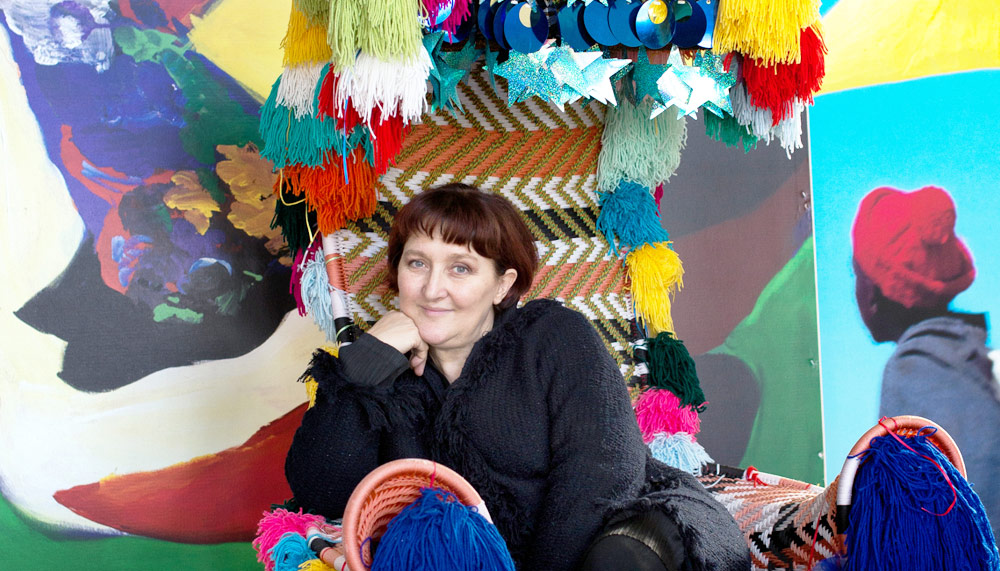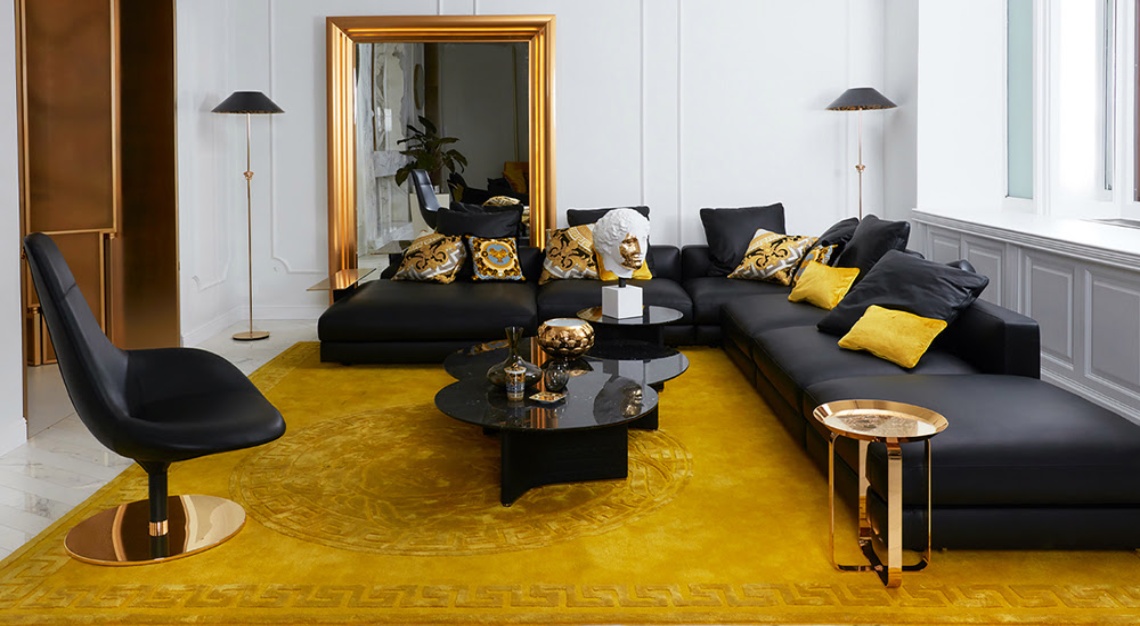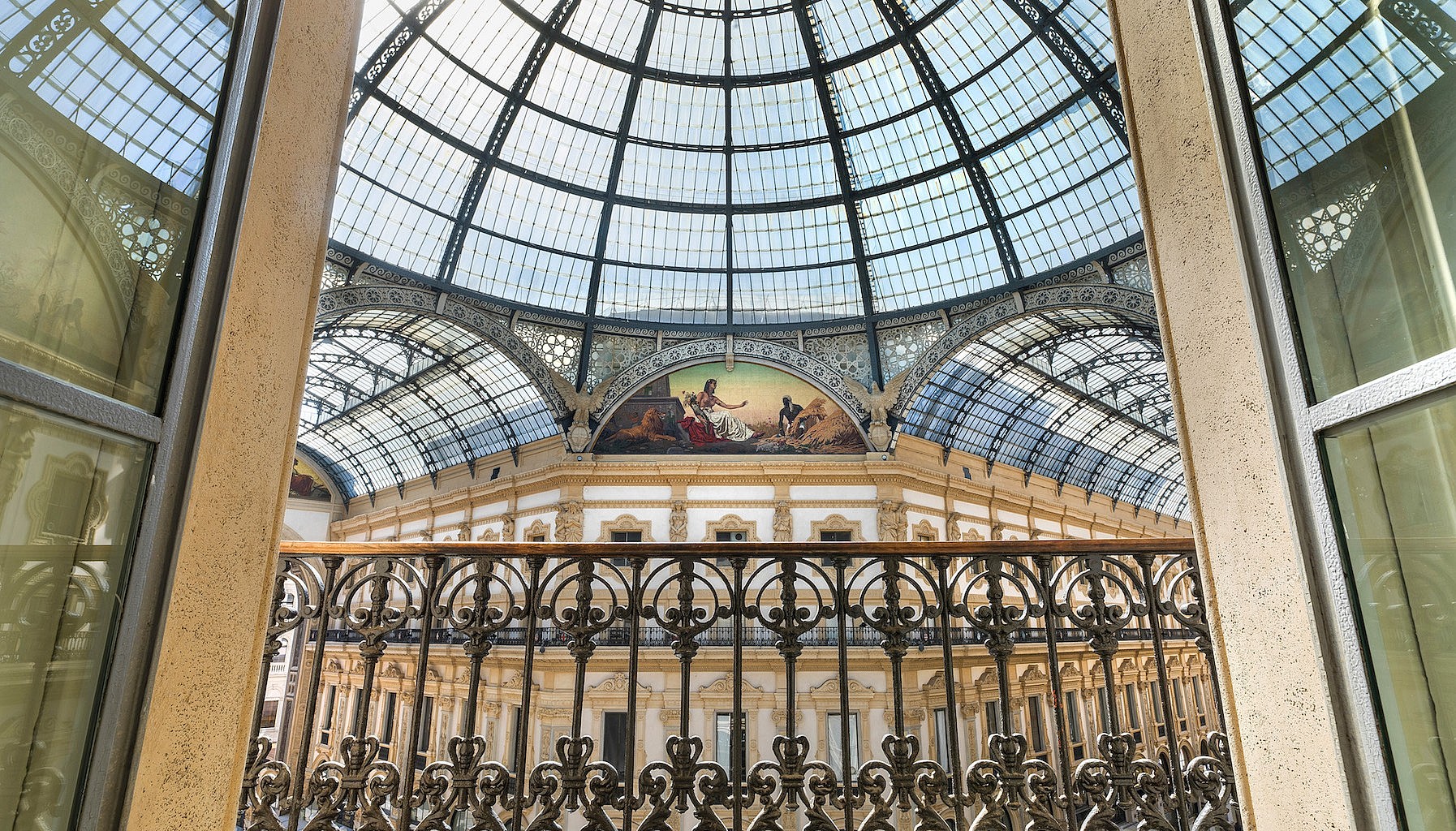Design Doyenne
With characteristic Italian hospitality, Patrizia Moroso ushers you into her studio the way a matriarch welcomes you into her home. She is careful to introduce every member in her team. Again, one thinks of a mother presenting her brood. And then, without missing a beat, she launches straight into a discussion on her work, her fabrics, her collaborators. This, despite it being the Monday after Milan Design Week, the most important event in the design calendar.
We – journalists and retailers from Singapore, Hong Kong, Vietnam and China – are in Udine, a city four hours from Milan. It’s home to Moroso, a cult furniture brand beloved by artists, designers and the fashion set. This is primarily because of its design-led product lineup that places heavy emphasis on fabric and material innovation. Here, Patrizia – daughter of founder Agostino Moroso and the brand’s art director – waxes lyrical about the year’s most significant projects and her passion for fabrics.

The Modernista project was one of the most important shown in Milan this year. The fabric is from Kvadrat, and was designed by our textile consultant Giulio Ridolfo. With this fabric we created the sofa together with designers Nipa Doshi and Jonathan Levien. In future, the fabric will be for everyone, but we had the exclusivity of using it for the first time in Milan on that special sofa. We have a very strong relationship with Kvadrat. More than 50 per cent of the fabrics we use are done by them.
At the fair, there was also a fabric with flowers and birds printed on canvas. The designer of the sofa, Edward van Vliet, wanted something fresh and new. That for me was beautiful because it was not designed by pencil or watercolour, but it was a picture, a photograph, very precise and high-res. That for me is very modern and contemporary.

Fabric plays a big part in the development of a project. It’s what you see, what you touch. A shape is a shape, (but with fabric) you can put anything you want, you can change the skin of the object. In a way it’s like fashion: you have a model, and that model can have many colours and fabrics. Not making a mistake when choosing a fabric is very important. When you make a mistake, you can’t sell that item. With the correct fabric and colour, it might be a big success.
A project is only unique if you use a fabric made just for you, not a standard fabric. That’s very important for us. We develop many things with Giulio and the textile companies. For example, we have a fabric inspired by the striped structure of the Husk chair, which was part of the M’Afrique collection. We reproduced the idea of the stripes on the fabric.
The M’Afrique collection was a project that was born in Senegal in 2008. My husband is from Senegal. While we were touring the country, we saw craftsmen producing different things using yarns made from fishing nets. The nets are found in every little market throughout the country. We thought if we added an element of design to what they were doing, it would be fantastic. The first project was Tord Boontje’s Shadowy collection, and then little by little we grew. And now there’s a nice little community of 30 to 40 people working on these projects for us.
In the beginning, the fishing net yarns (polypropylene) were a nice and cheap material. Many things that we do are only possible with that kind of yarn. They are fantastic for things like tables. But ultimately, it’s a cheap material that could break if you use it incorrectly. So now we’re trying to experiment with other kinds of threads, like those made from boat sails.






